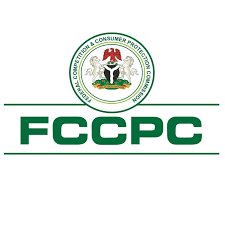The Nigerian telecommunications landscape is embroiled in a contentious debate surrounding unexplained data depletion, with subscribers accusing operators of unfair practices and demanding regulatory intervention. A wave of emails and direct messages has flooded the Nigerian Communications Commission (NCC) and the Federal Competition and Consumer Protection Commission (FCCPC), echoing public outcry over rapidly diminishing data balances despite unchanged usage patterns. This public discontent coincides with a recent 50% tariff hike on data and call prices implemented in February, further fueling subscriber frustration and suspicion. Social media platforms have become battlegrounds for this escalating conflict, with users sharing screenshots of their complaints to regulatory bodies and engaging in heated exchanges with customer service representatives. The crux of the subscriber argument centers on the belief that the operators’ billing systems are flawed, leading to inflated data usage calculations, rather than attributing the issue to increased consumption. This sentiment is encapsulated in calls for mass reporting of the telecom operators to regulatory bodies to pressure them into addressing the perceived price hikes and rapid data depletion.
The telecom operators, however, present a contrasting narrative. They vehemently deny any manipulation of data balances, asserting that the observed increase in data consumption is a direct consequence of evolving user behavior. They point to the ongoing transition to 5G technology, which offers significantly higher speeds and bandwidth, leading to increased data usage, particularly for data-intensive activities like video streaming. This argument draws parallels with previous network upgrades, such as the shift from 2G to 3G and 3G to 4G, where similar surges in data consumption were observed as users adapted to faster internet speeds. Furthermore, operators emphasize the global standardization of data quantities, arguing that 1GB of data in Nigeria represents the same volume as 1GB anywhere else in the world. They contend that variations in perceived data depletion stem from differences in user habits, such as the frequency and duration of streaming high-definition videos or downloading large files. Essentially, operators maintain that user behavior, not operator manipulation, is the primary driver of the observed data depletion.
The Nigerian Senate, recognizing the growing public concern over data costs, has urged the Federal Ministry of Communications, Innovation, and Digital Economy to engage with telecom operators and review data and internet-related service costs. This intervention highlights the significance of the issue and the pressure mounting on both operators and regulatory bodies to address subscriber concerns. While operators have engaged in public relations efforts, offering data management tips and explanations via social media, these attempts have largely failed to appease frustrated subscribers who remain convinced of systemic issues within the billing systems. This deep-seated mistrust underscores the need for a thorough and transparent investigation to ascertain the root cause of the perceived data depletion and restore public confidence in the telecommunications sector.
In response to previous data depletion complaints, the NCC, in July 2024, mandated telecom operators to simplify their tariff plans, provide more transparent billing information, and undergo independent audits of their systems. As of the current reporting period, none of the operators have been found in violation of these regulations by the NCC. However, the persistence of subscriber complaints and the escalating public outcry suggest the need for further investigation and potentially stricter regulatory oversight. The regulator’s silence on the recent wave of complaints adds another layer of complexity to the situation, leaving subscribers feeling unheard and further fueling their distrust. The lack of a clear and timely response from the NCC underscores the need for proactive communication and transparency to address public concerns effectively.
The growing demand for data services has become the primary revenue driver for telecom companies in Nigeria, placing them in a position to capitalize on the country’s increasing reliance on digital connectivity. Nigeria’s internet consumption surpassed one million terabytes for the first time in January 2025, reflecting the country’s burgeoning digital economy and the crucial role of data services. This surge in demand, coupled with the high social media penetration in Nigeria – where users spend an average of three hours and 23 minutes per day on various platforms – underscores the importance of addressing data affordability and transparency concerns. While telecom companies like MTN have reported significant revenue growth driven by data services, Airtel Nigeria has experienced a decline in data revenue, potentially indicating a shift in market dynamics and the impact of subscriber concerns on consumer behavior.
The clash between subscribers and telecom operators over data depletion represents a critical juncture in Nigeria’s digital landscape. The escalating public pressure on regulatory bodies and the Senate’s call for intervention highlight the need for a comprehensive investigation to address subscriber concerns and ensure transparency in data billing practices. The increasing reliance on data services for both personal and economic activities necessitates a stable and trustworthy telecommunications sector. The ongoing debate underscores the delicate balance between operator profitability and consumer protection, demanding a concerted effort from all stakeholders to establish a fair and sustainable framework for data pricing and service delivery. The future of Nigeria’s digital economy hinges on resolving this critical issue and building a robust and transparent telecommunications infrastructure that serves the best interests of both consumers and operators.














